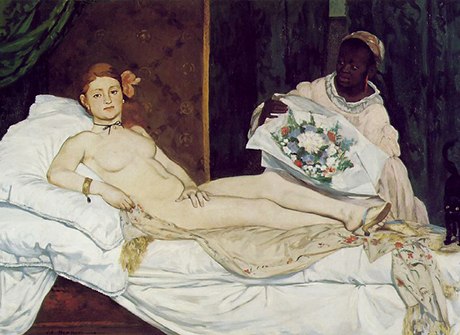
Decolonization is about understanding that our realities, and everything we consider the norm and acceptable, are made up by westernisation. Our idea of fun, families, economics and even love has been shaped by colonisation. I have been forced to reckon with how colonialism may be responsible for my idea of love, and whilst I have reached my conclusion, I know it is not one I want others to be forced to choose. Decolonialism is about humility, the acceptance that there are many realities and truths outside one, that there are a multiplicity of ways of life, and we should all be allowed to choose. One way is never the only way, and one way is never the only right way.
The comments and vitriol against Jada Pinkett Smith for expressing her rights in her open marriage show just how far we have to go as a society in letting people choose what works for them and what makes them happy. Our hyper-focus on finding the “one” reflects the success of Western media in ensuring we feel purposeless and incomplete without romantic love when this could not be further from the truth. “Decolonial love places our wild feelings up in the sky where they can puncture the darkness and guide us toward integrity, a new home”.
Non-monogamy
Attitudes toward non-monogamy have not changed much according to KimTallbear, a professor in Alberta who specialises in decolonial sexualities. Non-monogamy is often seen as a “cover for selfishness, commitment phobia and sluttiness”. There is this belief and stereotype that non-monogamous people have shallower relationships, or tend to instrumentalise people, discounting the fact that this too can happen in monogamous relationships. However, non-monogamy is deeply political. Amongst leftists, it goes widely unacknowledged that monogamy has its roots in capitalism, and was violently enforced upon colonised peoples. There seems to be little understanding of how monogamous settler marriage was imposed on us to build today’s current settler state.
Historian Nancy Cott argues that the Christian model in the US of lifelong monogamous marriage was not a dominant worldview until the late 19th century. Instead, It took work by sexologists to make monogamist marriage seem like a foregone conclusion. Western sexologists stated that highly engaged peoples practised monogamy, and turned from the less evolved practices of arranged marriages and non-monogamy. As part of the mission of saving indigenous and black peoples from their savagery, they were forcefully indoctrinated into the monogamist couple centric nuclear family. The confining nuclear family practised today is the evangelical ideal for the settler state. Likewise, Nana Darkoa Sekyiamah, author of the Sex lives of African women explains that British colonisers framed our contemporary relationship structures, regarding non-monogamous relationships as immoral.
It can take time and energy to practise non-monogamy in a capitalist society where monogamy is the dominant relationship style. It must also be added that being monogamous has certain social and financial advantages such as marriage tax breaks that not everyone can afford to forgo. However, we must let people figure things out for themselves. It is also important that in challenging the dominance of compulsory monogamy, we do not pit different relationship styles against each other. There are seldom non-monogamous people who are anti-monogamy. When monogamy is being criticised it is never the idea that is being challenged, but rather the institution of monogamy and its toxic parts; the idea that jealousy equals love and care, or that love is sacrifice, or that your partner should be able to meet ALL YOUR NEEDS, or finally, that finding your one true romantic partner, should be the sole focus of your entire existence.
The reality is that whether or not you are having sex with more than one person, you can sustain multiple close relationships. All that is different in non-monogamy is that you are being romantic and sexual with more than one person. We must begin to interrogate compulsory monogamy and the shame, stigma and lack of benefits non-monogamy come with, tearing down the ways it is rewarded in society both culturally and at the policy levels. We must advocate for policies like “universal health care, easier child custody arrangements, non monogamous” and more, that support a more expansive definition of family. Decolonization is not an individual choice, it takes a collective to advocate for systemic change.
De-centring Romantic Love
Another way to decolonise monogamy is by understanding that love goes beyond romance. This way of thinking can not be heavily criticised because the idea of love as only romantic is everywhere. From the time we are children to adulthood, we are flooded with messages about monogamy, heterosexuality and normalcy; that a romantic relationship should be prioritised above all else. Romantic relationships are taught as what should be reached and hoped for. That our lives are purposeless without it. However, centring your life waiting for a “great love story” can cause one to be stagnant in many areas of life and lack boundaries. De-centring romantic love can allow us to be clearer with our boundaries. It allows us to focus on the ways we are already full and enough. “If I’m not anxiously waiting for someone to make my life complete, I can more easily dismiss anyone who doesn’t add value to my life”.
It took learning the hard way for me to appreciate the great loves of my life that are not romantic, from my close circle, who I now see as family, to my siblings who bring me great joy. I am often seen smiling and giggling at my phone, and immediately the assumption is I am speaking to a lover, and in a sense, yes, I am speaking to a lover, just not the one that society dictates. My close circle has kept me alive. From my close circle I have experienced true and authentic love, my friends who pick up calls to hear me rant about the tiniest things, who have shown up and out for me in times of need, who share a Decolonial Thoughts post anytime it goes live, and encourage me to do more with it, who let me know it is human to make mistakes, so long as I own up to them, who take trips with me, and let me know joy and life is in the present. My close circle is my family.
A shift away from romantic love, also allows us to make strides towards revolutionary love. Love is the backbone of radicalism, a love that allows us to fight for the people we believe in, even when we are tired and exhausted, suffering from burnout. It is what allows us to do anything necessary to fight for the freedom of the collective. Romantic love as our society is teaching us is limited. However collective love demonstrated in the form of “self, community, love of the land, sisterhood, familial love (chosen and born)” etc. is infinite. I am not saying that I do not want romantic love, or that it will never occur in my life, however, love is an action word, it goes beyond a fairy tale.
Community.

